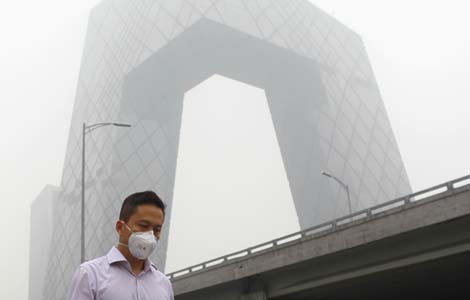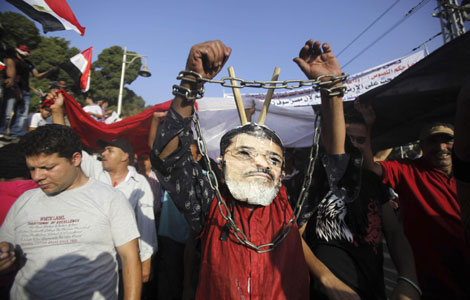Has China's banking sector entered a crunch time?
Updated: 2013-07-02 11:19
(bjreview.com.cn)
|
||||||||
This time, the PBOC wants to rein in excess bank lending, especially in the sector of shadow banking—all non-bank loans that involve banks and trust companies, underground finance, micro-credit companies, private financing, private-equity investment, hedge funds and off-balance sheet lending transactions. China's shadow banking system has lent far too much and too recklessly over the past several years. Excessive amounts of debt have been accumulated by speculators, property developers and local governments. The PBOC wants to push money instead into the real economy as it seeks to shore up growth.
Experts warn that without thorough reform of the country's banks, the entire financial system could face its biggest crisis yet.
The real reason
June is a traditional season for a liquidity crunch, but this year's situation was worse. A source from the PBOC told Xinhua News Agency that several specific factors contributed to the tightness. "First, bank loans rocketed in the past several months, causing liquidity pressure on commercial banks. Second, the end of May is the traditional peak season for corporate tax payments. Third, a recent regulation on the foreign exchange market to clamp down on capital inflows has made China suffer from a drop in foreign exchange inflows in recent weeks and months.
But do banks really lack cash? The answer is no.
As of June 21, financial institutions had total provisions of 1.5 trillion yuan ($242 billion). Usually, provisions of 600 billion to 700 billion yuan ($97.62 billion to $113.89 billion) could meet the needs of daily banking transactions, according to a PBOC statement on its website.

 Egypt army gives Mursi 48 hours to share power
Egypt army gives Mursi 48 hours to share power
 No quick end in sight for Beijing smog
No quick end in sight for Beijing smog
 New filial law sparks debate
New filial law sparks debate
 Bakelants claims Tour de France second stage
Bakelants claims Tour de France second stage
 2013 BET Awards in Los Angeles
2013 BET Awards in Los Angeles
 Gay pride parade around the world
Gay pride parade around the world
 Four dead in Egypt clashes, scores wounded
Four dead in Egypt clashes, scores wounded
 New NSA spying allegations rile European allies
New NSA spying allegations rile European allies
Most Viewed
Editor's Picks

|

|

|

|

|

|
Today's Top News
19 firefighters killed in Arizona fire
Book reveals islands' true history
Tokyo warned not to resort to 'empty talk'
Snowden applies for Russian asylum
No quick end in sight for Beijing smog
New home prices defy curbs
Mandela 'still critical but stable'
Shanghai to open first Sino-foreign high school
US Weekly

|

|






